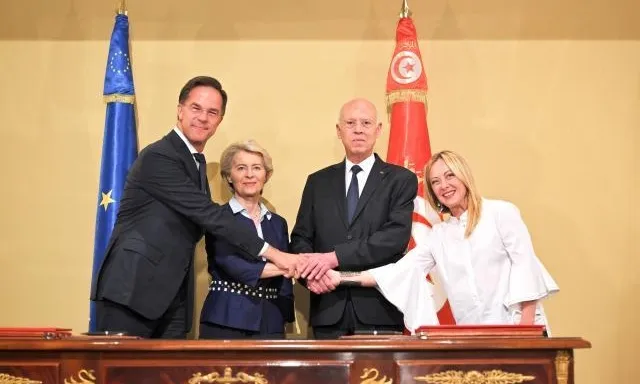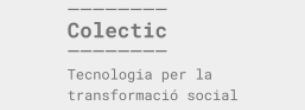Egypt's debt must fall with Mubarak's regime, article of Nick Dearden
Comparteix
The debts of Egypt and Tunisia must be cancelled if the people on the streets of Cairo and Tunis are to take control of their economy and hold Western countries to account.
In the best tradition of dictators, Hosni Mubarak pillaged Egypt’s economy, and leaves office with as much as $70 billion in his family’s bank account while he bequeaths $30 billion in debt to the Egyptian people. Zine el Abidine Ben Ali leaves $15 billion to the people of Tunisia, taking a more modest $3 billion for himself. As more regimes come tumbling down, so these injustices will multiply.
The true creditors of Egypt, Tunisia and elsewhere are not the Western states who used loans to prop up their tough guys across the Arab world – they are the people of these countries who suffered under this rule. The West must now repay those debts by opening up their lending to public scrutiny, returning the assets of Mubarak and his cronies that have been banked in Europe and the US, and cancelling unjust debts across the Arab world. The Egyptian people must not continue to pay the bill for Western complicity through large debt repayments.
It is too easy for American and British leaders to issue warm words to the people of these police states who have endured corruption, torture and violations of human rights for decades. In fact Tony Blair has been the most honest appraiser of the situation. While most Western leaders dropped Mubarak so fast that you wonder how his desperately unpopular regime clung onto power for so long, Britain's former Prime Minister called his one time ally "immensely courageous and a force for good".
For the US and Europe, Mubarak was indeed an excellent client. Egypt repays its loans, many of which were undoubtedly run up in the interests of the regime rather than the people, at a rate of around $3 billion a year. This money has diverted what could otherwise have been used to improve the lives of ordinary Egyptians. Since 1981, Egypt has paid the equivalent of $80 billion dollars in debt and interest repayments, helping redistribute money from Egypt's poor to the global rich.
Some of the country's debt is undoubtedly military in nature. Egypt receives more US military support than any country in the world apart from Israel – well over $1 billion a year since Mubarak came to power in 1981. The British Government has allowed UK companies to supply Egypt with as much as £23 million ($37 million) of military equipment in 2008, £16 million ($26 million) in 2009. No doubt this came in useful when Egypt became a major centre for the US “war on terror” program of kidnapping, secret flights and illegal detention and torture.
Egypt currently owes nearly £100 million ($160 million) to the UK. Although the Government refuses to say what Egypt's debt is based on, we know that it relates to British exports through the controversial Export Credits Guarantee Department, largely based on sales which took place early in Mubarak's rule. This shadowy Government department insures British business working in ‘risky’ parts of the world – usually supporting arms, aerospace and fossil fuel industries.
Tunisia faces a similar situation – under Zine el Abidine Ben Ali, the country made repayments well in excess of $40 billion. Again, Ben Ali served Western interests while suppressing his people who finally rose up against his rule in January.
When people have begun to take control of their countries in the past – from apartheid South Africa to Bolivia, from Argentina to Poland – debt has been used as a key means of forcing undemocratic economic policies on those countries. These policies have caused great pain and suffering to the poorest in those societies, and put a block on democracy extending in any way into the economic sphere. If the revolutions in Tunisia and Egypt genuinely usher in a new era of independence for the people of those countries and if, as seems likely, the spark which has been lit in North Africa spreads across the Arab world, the next step will be holding to account those responsible for decades of kleptocratic and brutal rule.
As well as trying to recover money stolen by their former rulers, this means questioning the legitimacy of the debt that kept those rulers in power. It is time for the peoples of North Africa to break their chains of debts which have already helped suppress freedom and development for a generation.
Nick Dearden is Executive Director Jubilee Debt Campaign UK (http://www.jubileedebtcampaign.org.uk/)















Afegeix un nou comentari